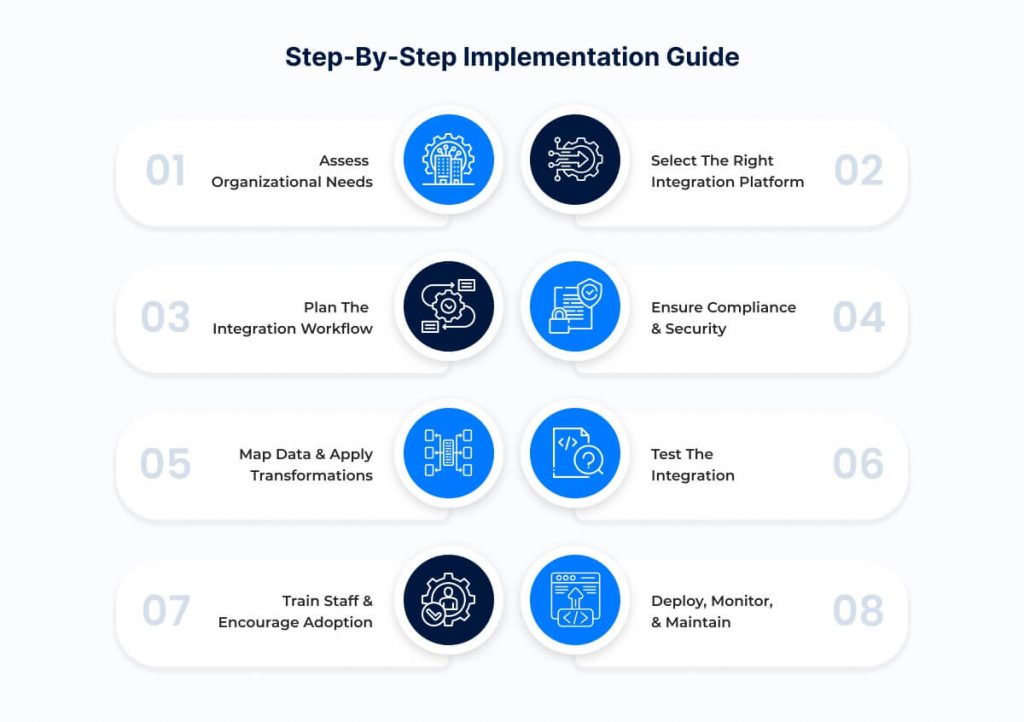In the current healthcare environment, medical practices face a growing demand for better customer service. As patient expectations change, healthcare professionals need to find solutions that enhance communication and engagement. The integration of artificial intelligence (AI) and workflow automation is becoming a common approach. AI-driven technologies can help healthcare practices in the United States improve service delivery, streamline operations, and raise patient satisfaction, while also addressing usual administrative issues.
Understanding the Gap in Phone Communication
Many medical practices, particularly dental clinics, face challenges with incoming patient calls. Recent research shows that up to 30% of calls to dental practices are left unanswered due to staff shortages, lack of resources, and unclear procedures. This situation presents a clear opportunity for practices to use automated systems to manage and respond to patient inquiries efficiently.
Most patients prefer phone interactions, with over 65% choosing to speak directly to customer service representatives. Not addressing this communication gap can lead to lower patient satisfaction and potential revenue loss. Implementing AI solutions can help ensure that patients receive timely assistance, which is vital for maintaining trust and loyalty.
The Benefits of AI in Customer Service
AI technologies are becoming essential in improving customer service within healthcare settings. By automating routine tasks, AI helps reduce human error and enhances operational efficiency. Here are several key benefits of using AI in medical practices:
- Automated Appointment Scheduling: AI solutions like virtual assistants and chatbots can manage appointment bookings around the clock. This streamlining reduces the workload on support staff, allowing them to focus on more complex issues that require personal interaction.
- Reduced No-Show Rates: AI-driven appointment management systems can send personalized reminders via text or email, which can lower no-show rates. Data indicates that integrated systems can improve attendance and boost revenue for busy medical practices by making rescheduling easy for patients.
- Enhanced Patient Interactions: Chatbots and voice bots provide immediate answers to common patient questions, such as billing inquiries or prescription renewals. This quick response encourages patients to engage more with the practice, helping to build positive relationships.
- Data Analytics for Better Understanding: AI can analyze data from patient interactions and appointment trends, offering valuable information that helps practices refine their scheduling and improve operational efficiency. A structured approach to patient engagement can enhance both satisfaction and retention.
- Integrating AI with Existing Systems: Merging AI tools with current practice management software allows for better data handling, which improves communication between patients and staff. This integration gives healthcare professionals more time for patient care instead of administrative tasks.
AI and Workflow Automations: Streamlining Operations
AI solutions can greatly improve workflow automation, making numerous processes within a medical practice simpler. By introducing AI-powered ticketing systems, practices can manage higher volumes of patient inquiries effectively. Constant monitoring of these systems helps practices adapt to patient needs and preferences over time.
Centralized Call Management: Creating a centralized call center with AI automation allows practices to align their goals with patient feedback and operational requirements. Tools like Patient Prism enable staff to monitor patient interactions and analyze data, improving training initiatives, service delivery, and revenue.
Simplifying Patient Journeys: It is essential to map the patient journey to identify service delivery improvements. By integrating systems that guide patients through their healthcare experience, practices can refine communication and build trust through effective interactions. Automated solutions can handle routine queries, freeing healthcare personnel to focus on more complex patient needs.
Multilingual Capabilities: The diverse patient population in the United States requires communication in various languages. AI solutions can address this need by providing multilingual support, ensuring that every patient feels understood, which in turn improves access and satisfaction.
Syllable’s Impact on Patient Access
Syllable is one organization making significant progress in this area with its Patient Assistant platform, which changes how healthcare practices manage patient inquiries. This platform automates responses to incoming calls, allowing over 50% of these communications to be handled efficiently by AI.
Practices utilizing Syllable have noticed significant changes. For example, the daily agent call volume decreased from around 1,200 to 400, enabling staff to concentrate on more advanced responsibilities. The AI system integrates smoothly with electronic health records (EHRs), creating a clear communication channel that enhances patient satisfaction.
Moreover, Syllable demonstrates its commitment to effective communication by regularly hosting initiatives focused on innovation, such as hackathons. These efforts improve their services and contribute to the overall enhancement of patient access.
Personalized and Engaging Patient Experiences
There is a growing emphasis on personalization in patient interactions within healthcare. Using AI tools, medical practices can craft tailored experiences that fit the unique needs of each patient. For instance, integrating systems that assess patient behavior allows practices to communicate effectively based on personal preferences.
Conversational AI: This technology provides patient assistance through easy dialogue. Patients can communicate with AI to set appointments, get information about services, or inquire about their medical history. This kind of engagement ensures that patients feel valued, promoting deeper connections.
Feedback Collection: AI systems can gather and understand patient feedback, which is important for ongoing improvement. By helping administrators recognize what patients appreciate or where improvements are needed, practices can better adjust their service models.
Staff Training and AI Adoption
While adding AI offers many benefits, staff must also be prepared to use these technologies properly. Training healthcare personnel on AI tools promotes a patient-centered approach and improves communication.
AI can assist staff by automating routine tasks, allowing them to concentrate on their main responsibilities: providing quality patient care. Utilizing AI in administrative roles can help reduce staff burnout and increase job satisfaction.
Choosing the Right AI Tools: Selecting appropriate AI systems for a medical practice can significantly impact the outcome. Organizations should assess the specific needs of their operations, including how well these systems can integrate with existing technologies and available customization options.
Platforms like Patient Prism, NEXUS AI, and Virtual Cube Communication Services each offer unique features to meet various operational environments. Conducting thorough research to find the best fit before implementation is essential.
The Future of AI in Healthcare Customer Service
The healthcare sector is at an important point, with AI technologies set to change service delivery. The global conversational AI market is expected to reach $2.34 billion by 2027, reflecting a significant annual growth rate of 17.2%. This growth shows the increasing recognition of AI’s potential to enhance patient care and engagement in medical practices.
Healthcare administrators, owners, and IT managers should stay informed about these developments and consider incorporating AI into their strategic planning. Implementing AI solutions can lead to improved workflows and better patient interactions, along with greater operational efficiency.
Conclusion: Embracing AI for Improved Service Delivery
In summary, incorporating AI technologies into medical practice operations is an essential step toward enhancing customer service. From managing incoming calls and automating appointment scheduling to analyzing patient data for actionable outcomes, AI is reshaping the patient experience in healthcare settings.
By using these tools thoughtfully, healthcare practices can strengthen relationships with their patients, improve service quality, and ultimately enhance operational efficiency—critical factors in succeeding in a competitive sector. Through AI, practices can change their approach to customer service, meeting the expectations of modern healthcare consumers while preparing for future needs.
The post Elevating Your Medical Practice’s Customer Service with AI Automation first appeared on Simbo AI – Blogs.






